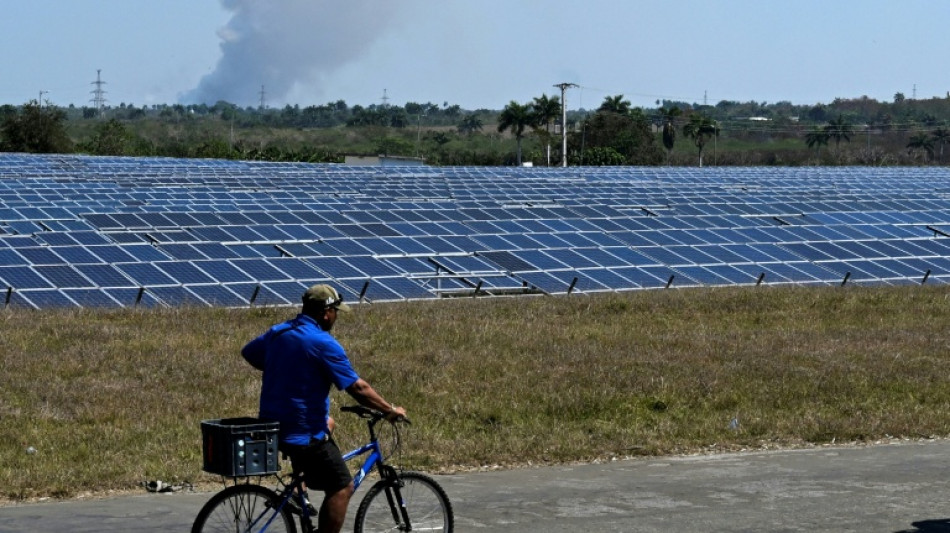
-
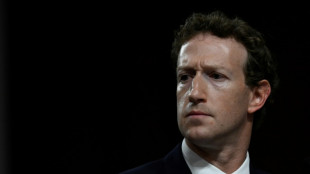 Zuckerberg denies Meta bought rivals to conquer them
Zuckerberg denies Meta bought rivals to conquer them
-
Starc stars as Delhi beat Rajasthan in Super Over

-
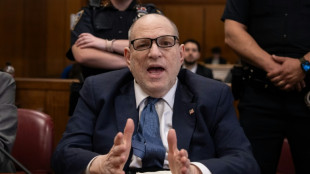 Weinstein asks to sleep in hospital, citing prison 'mistreatment'
Weinstein asks to sleep in hospital, citing prison 'mistreatment'
-
Amorim asks McIlroy to bring Masters magic to Man Utd

-
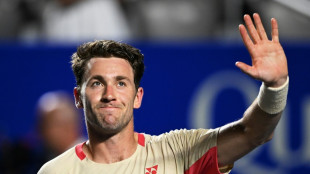 Ruud keeps Barcelona Open defence on course
Ruud keeps Barcelona Open defence on course
-
Trump tariffs could put US Fed in a bind, Powell warns

-
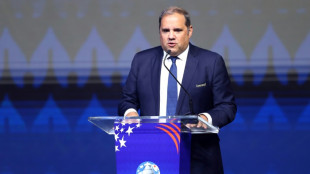 CONCACAF chief rejects 64-team World Cup plan for 2030
CONCACAF chief rejects 64-team World Cup plan for 2030
-
Putin praises Musk, compares him to Soviet space hero
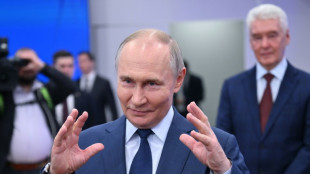
-
 Son to miss Spurs' Europa League trip to Frankfurt
Son to miss Spurs' Europa League trip to Frankfurt
-
US senator in El Salvador seeking release of wrongly deported migrant

-
 Trump tariffs could put the US Fed in a bind, Powell warns
Trump tariffs could put the US Fed in a bind, Powell warns
-
US judge says 'probable cause' to hold Trump admin in contempt

-
 India opposition slams graft charges against Gandhis
India opposition slams graft charges against Gandhis
-
Nate Bargatze to host Emmys: organizers

-
 US Fed Chair warns of 'tension' between employment, inflation goals
US Fed Chair warns of 'tension' between employment, inflation goals
-
Trump touts trade talks, China calls out tariff 'blackmail'

-
 US judge says 'probable cause' to hold govt in contempt over deportations
US judge says 'probable cause' to hold govt in contempt over deportations
-
US eliminates unit countering foreign disinformation

-
 Germany sees 'worrying' record dry spell in early 2025
Germany sees 'worrying' record dry spell in early 2025
-
Israel says 30 percent of Gaza turned into buffer zone

-
 TikTok tests letting users add informative 'Footnotes'
TikTok tests letting users add informative 'Footnotes'
-
Global uncertainty will 'certainly' hit growth: World Bank president

-
 EU lists seven 'safe' countries of origin, tightening asylum rules
EU lists seven 'safe' countries of origin, tightening asylum rules
-
Chelsea fans must 'trust' the process despite blip, says Maresca

-
 Rebel rival government in Sudan 'not the answer': UK
Rebel rival government in Sudan 'not the answer': UK
-
Prague zoo breeds near-extinct Brazilian mergansers

-
 Macron to meet Rubio, Witkoff amid transatlantic tensions
Macron to meet Rubio, Witkoff amid transatlantic tensions
-
WTO chief says 'very concerned' as tariffs cut into global trade

-
 Sports bodies have 'no excuses' on trans rules after court ruling: campaigners
Sports bodies have 'no excuses' on trans rules after court ruling: campaigners
-
Zverev joins Shelton in Munich ATP quarters
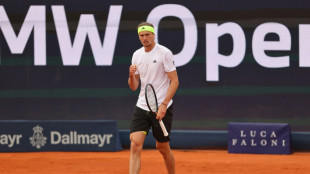
-
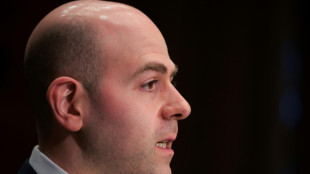 The Trump adviser who wants to rewrite the global financial system
The Trump adviser who wants to rewrite the global financial system
-
US senator travels to El Salvador over wrongly deported migrant

-
 UN watchdog chief says Iran 'not far' from nuclear bomb
UN watchdog chief says Iran 'not far' from nuclear bomb
-
Trump says 'joke' Harvard should be stripped of funds

-
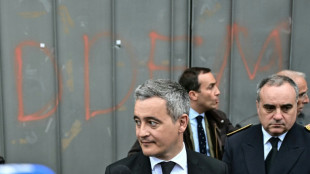 Macron vows punishment for French prison attackers
Macron vows punishment for French prison attackers
-
Canada central bank holds interest rate steady amid tariffs chaos
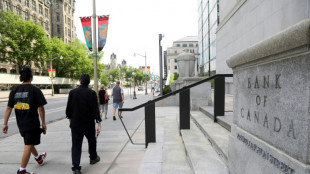
-
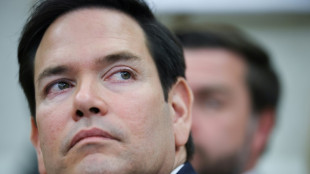 Rubio headed to Paris for Ukraine war talks
Rubio headed to Paris for Ukraine war talks
-
Australian PM vows not to bow to Trump on national interest
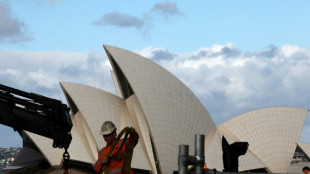
-
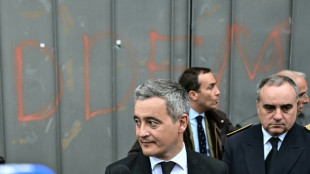 New attacks target France prison guard cars, home
New attacks target France prison guard cars, home
-
Global trade uncertainty could have 'severe negative consequences': WTO chief
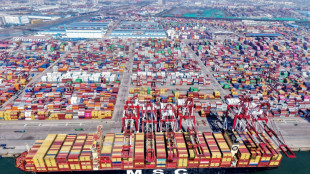
-
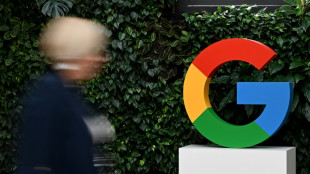 Google facing £5 bn UK lawsuit over ad searches: firms
Google facing £5 bn UK lawsuit over ad searches: firms
-
Onana to return in goal for Man Utd against Lyon: Amorim
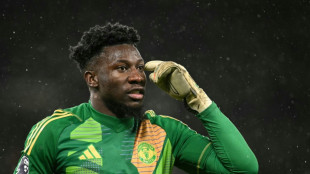
-
 Tiktok bans user behind Gisele Pelicot 'starter kit' meme
Tiktok bans user behind Gisele Pelicot 'starter kit' meme
-
'Put it on': Dutch drive for bike helmets
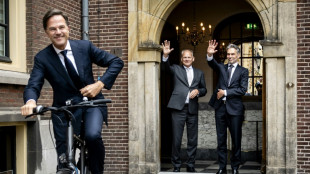
-
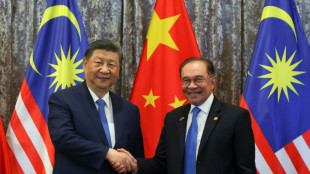 China's Xi meets Malaysian leaders, vows to 'safeguard' Asia allies
China's Xi meets Malaysian leaders, vows to 'safeguard' Asia allies
-
France urges release of jailed Russian journalists who covered Navalny
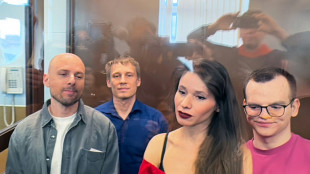
-
 Gabon striker Boupendza dies after 11th floor fall
Gabon striker Boupendza dies after 11th floor fall
-
UK top court rules definition of 'woman' based on sex at birth
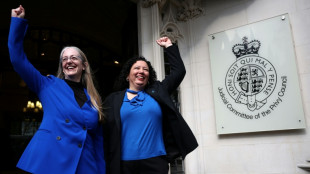
-
 PSG keep Champions League bid alive, despite old ghosts reappearing
PSG keep Champions League bid alive, despite old ghosts reappearing
-
Stocks retreat as US hits Nvidia chip export to China
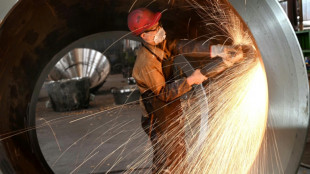

Cuba looks to sun to solve its energy crisis
Not far from the ruins of an unfinished nuclear power plant in the Cuban province of Cienfuegos, hundreds of workers are hastily installing 44,000 solar panels as the island seeks once again to reduce its reliance on oil to escape an energy crisis.
Forty years ago, the solution was thought to be Russian nuclear energy. This time, it is the sun. With help from China.
Dozens of containers with Chinese inscriptions are lined up at the "La Yuca" photovoltaic park, where forklifts loaded with solar panels weave between the concrete frames that will hold them.
"We are laying wires, digging trenches and installing panels," a worker on the project, to be completed in May, explained of the frenetic activity.
Cuba, an island of some 10 million inhabitants, remains highly dependent on fossil fuels to operate its eight outdated thermoelectric power plants, most of them online since the 1980s and '90s and prone to frequent breakdowns.
The communist government has approved the construction of 55 solar parks by 2025.
Five of them will be in the central province of Cienfuegos, that also hosts an industrial port and a refinery, and was chosen in the 1980s to host a Soviet-funded nuclear power plant that was aborted mid-build when the USSR collapsed.
Cuba's fragile electric grid has gone offline four times in the past six months, plunging the majority of the country into darkness, sometimes for days on end.
Most of the country faces near-daily outages blamed mainly on fuel shortages.
"More than half of all the fuel consumed by the country goes towards electricity production," Energy and Mines Minister Vicente de la O Levy recently told state-run newspaper Granma.
- Millions of dollars -
Most of the oil has come from Venezuela which, like Cuba, is under US sanctions and has seen the administration of President Donald Trump recently revoke licences that allowed transnational companies to extract crude there.
The country also uses floating electric plants rented from a Turkish company, and generators fueled by crude oil even as there is not enough petrol for the island's cars, tractors and ambulances.
The country produces about a third of the fuel it consumes, and buys the rest.
De la O Levy has said solar parks are at the heart of Cuba's renewable energy goals because the "investments are cheaper, they are built more quickly, and can be spread throughout the country."
The communist island, grappling with its worst economic crisis in decades, aims to generate 12 percent of its energy from renewable sources by 2025 and 37 percent by 2030.
By the end of this year, it hopes to produce 1,200 MW in solar energy per day -- almost equal to its daily electricity deficit of 1,500 MW.
The ambitious project requires an investment of several million dollars, and with few Western friends, Cuba has gladly accepted support from what the presidency described in February as "the sister nation of #China."
A total cost estimate has not been made public.
- 'The quickest way' -
Just 15 kilometers (9.3 miles) from "La Yuca" stands an imposing steel dome designed to protect what was going to be a nuclear reactor -- the last large-scale attempt to change Cuba's energy mix.
On its thick concrete walls, Russian inscriptions are still visible.
The project was canceled in 1992 by then-president Fidel Castro after the fall of the USSR, a Cuban ally, which had largely financed the project and provided physicists and engineers.
Eliecer Machin, a thermophysicist trained in the USSR who still lives in the "nuclear city" built to house the personnel of the would-be power plant, recalls the "hard blow" when it was shuttered.
The 60-year-old now makes a living as a pig farmer.
Today, as a result of mistakes made in the past, he said, solar is "the quickest way to obtain energy."
University of Texas researcher Jorge Pinon said the solar energy would mean little if Cuba doesn't have batteries to store it for use in periods of darkness.
P.Staeheli--VB


